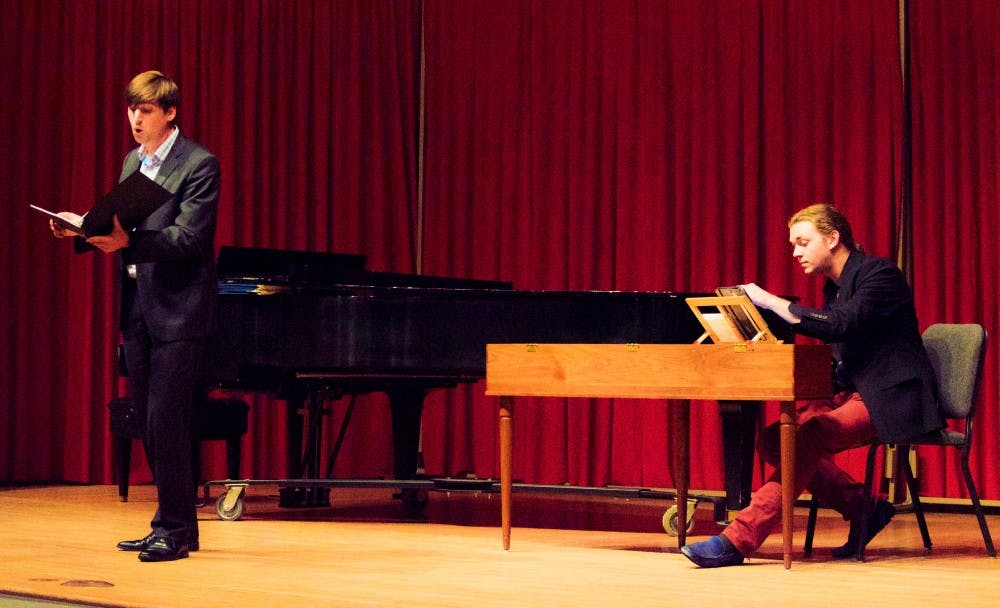When we think of Shakespeare, many people ask themselves, why is he famous?” countertenor Nathan Medley said at the first Chapel Series of the year, Shakespeare’s Songbook, this past Wednesday.
“I myself didn’t have an answer to that question at first either. However, as I did research and analyzed further, I came to realize that very few people in history have had complete ownership over the English language as Shakespeare did. He mastered it so well that he could break the rules of writing in a beautiful way,” Medley said.
Although classical music and Shakespearean writing is most likely not on the top of many individuals’ list of desired forms of entertainment, vocalist Medley, accompanied by Scott Ewig on piano and keyboard, collaborated rather harmoniously. This contributed to a chilling and passionate performance that even modernists could appreciate.
The duo performed 15 selected works of Shakespeare which included “O Mistress Mine,” “It was a lover and his lass,” and “When that I Was a Little Tyne boy.” Prior to performing each work of Shakespeare transformed to song, Medley dissected the core of the pieces, explaining their significance and what figurative tools Shakespeare used to construct them. By breaking the literature down into bite-sized pieces, each member of the audience was supplemented with a mini history lesson on the time and works of Shakespeare in a rather clever and creative way.
“Music was an important part of the Shakespearean era,” Medley emphasized between songs. “In case you forgot, there were no cellphones or TVs back then. If you didn’t sing, dance or play an instrument, you probably weren’t invited out often — it’s just what they did.”
While a majority of Shakespeare’s literary works were not written with the intent of one day being paired with music, the addition of classical music to the pieces added a refined and complimentary dimension to them, while still conveying the original messages untouched by time.
“The music echoes the characters in the pieces,” Medley said. This exhibit of parallelism was illustrated in the song “Bess of Bedam,” as the pace and sound of the music shifted various times in order to capture the personality of a schizophrenic lover.
Medley also made it a priority to capture and seize the scene for the time period in his performances. He sang in various accents appropriate for the individual pieces, and with the help of Ewig, eagerly acted out introductory dialogue that led up to the songs.
According to Medley, if we take only one thing away from Shakespeare, it should be the idea that language is a flexible discipline that we should explore and push the barriers of.
New phrases are created every day. “What’s the phrase I hear kids saying a lot nowadays? ‘I’m Gucci?’ If you think about it, the saying is actually quite clever,” Medley said. He also stressed the importance of appreciating and learning about history and historic literary influences. Medley believes history ultimately connects us to our roots, and with that, shows us just how far we have come.
The next Shippensburg University Chapel Series event will be The Amernet String Quartet held on Friday, Sept. 30 at 7:30 p.m. in the Old Main Chapel.




The Slate welcomes thoughtful discussion on all of our stories, but please keep comments civil and on-topic. Read our full guidelines here.